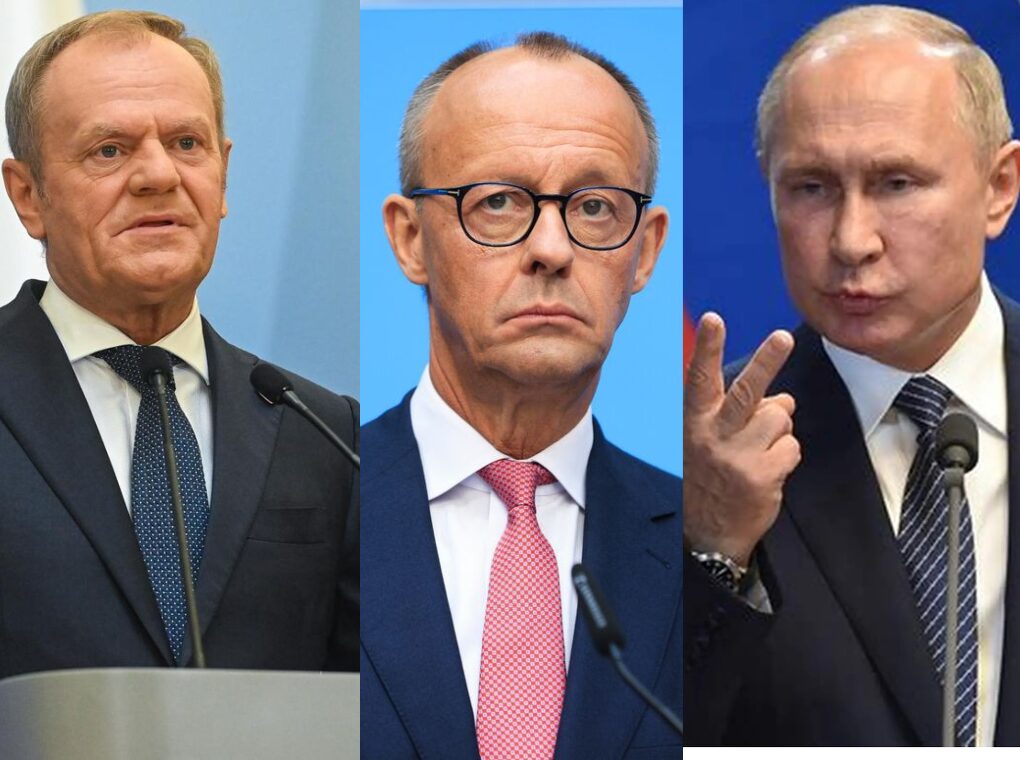In the silent depths of the Baltic Sea, where steel arteries once carried Russian gas to Europe, a mystery that has haunted geopolitics for years is finally resurfacing—with explosive implications. The Nord Stream pipeline sabotage of September 2022, long shrouded in speculation, now points toward an unexpected culprit: Ukraine. According to the findings of a meticulous German investigation, a covert Ukrainian military unit allegedly masterminded the operation under the supervision of former Commander-in-Chief Valerii Zaluzhnyi.
What was once dismissed as Kremlin propaganda has now evolved into a diplomatic crisis capable of shaking NATO’s moral foundations. If the evidence holds, Europe faces an uncomfortable question: when does Article 5—the cornerstone of NATO’s collective defense—apply when the attacker is a friend?
The Blast That Changed Europe
The Nord Stream 1 and 2 pipelines, stretching beneath the Baltic Sea, were critical lifelines linking Russia and Germany. On September 26, 2022, three of their four lines were obliterated by powerful explosives—HMX, or “octogen”—sending hundreds of millions of cubic meters of methane bubbling to the surface. It was one of the largest single releases of greenhouse gases in modern history, and a symbolic end to Europe’s energy dependency on Moscow.
At the time, blame ricocheted across the global stage. Moscow accused Washington and Kyiv, while Western capitals pointed fingers at the Kremlin. Yet, as years passed, the smoke began to clear. Danish and Swedish investigations fizzled out without indictments. Only Germany persisted—and now, the results are rattling Brussels and Washington alike.
According to German prosecutors, seven Ukrainians—three special forces operatives and four deep-sea divers—executed the operation from a rented yacht, Andromeda, departing Rostock. Investigators recovered traces of explosives, fingerprints, and DNA linking the suspects to Ukraine. Surveillance, phone records, and rental documents formed a chain of evidence difficult to dispute.
One suspect, Serhii K., a former Security Service of Ukraine (SBU) officer, was arrested in Italy this August and faces extradition to Germany. Another, Volodymyr Z., vanished from Poland after an Interpol notice surfaced. The alleged mastermind, Zaluzhnyi himself—once hailed as Ukraine’s “Iron General”—now serves as ambassador to London and is rumored to harbor presidential ambitions.
Strategic Motives, Political Fallout
The motive, according to leaked German findings, was strategic: cripple Russia’s energy exports and deprive its war machine of billions in gas revenues. Ukraine’s government officially denies involvement, calling the accusations “Russian disinformation.” Yet internal sources suggest Zaluzhnyi’s unit may have proceeded even after President Volodymyr Zelenskyy reportedly rejected the plan following a CIA warning.
This revelation places Europe in a moral chokehold. Germany, Ukraine’s second-largest donor, has poured more than €28 billion into Kyiv’s war effort. Now, it faces the grim prospect of prosecuting Ukrainian soldiers who once fought Russia’s invasion. Public sentiment in Germany has shifted: polls reveal growing fatigue over the conflict and rising anger at soaring energy costs—up more than 15% since the blasts.
Poland, meanwhile, has refused to extradite one suspect, arguing that Nord Stream itself was “a geopolitical mistake.” Italian courts remain split over cooperation. NATO officials tread lightly, aware that any accusation against Ukraine could fracture the alliance’s already delicate unity.
Article 5: The Sacred Shield Tested
Article 5 of the North Atlantic Treaty—an attack on one is an attack on all—has only been invoked once: after 9/11. While traditionally applied to direct military aggression, the 2022 Madrid NATO Summit expanded its interpretation to include “significant attacks” on energy infrastructure and undersea systems.
If Russia had destroyed Nord Stream, the alliance would have likely roared in unison. But with Ukraine implicated, the silence is deafening. The question “Article 5 against Ukraine, when?” now trends across social media, a bitter commentary on perceived Western hypocrisy.
In practical terms, invoking Article 5 against a non-member ally like Ukraine is impossible. Yet politically, the symbolism matters. The double standard reveals NATO’s blind spot: its unwillingness to hold partners accountable when strategic convenience outweighs principles.
The Alliance Under Strain
For Germany, the priority is containment. Chancellor Olaf Scholz, wary of fueling populist anger, prefers quiet diplomacy to confrontation. The U.S., implicated by earlier reports suggesting Washington’s foreknowledge of the blasts, is even less inclined to reopen old wounds. Russia, unsurprisingly, delights in the chaos—using every new revelation to brand NATO as “a house divided.”
Stakeholder/Stance on Article 5/ Invocation Rationale
Germany Opposed/ Avoids public backlash and maintains aid to Ukraine.
Poland Rejects /Considers Nord Stream sabotage a blow against Russian leverage.
U.S./NATO HQ Firmly against/ Prevents escalation; protects intelligence credibility.
Russia Supports/ Exploits the issue for propaganda gains.
Ukraine Dismissive/ Denies involvement/defends operation as “wartime necessity.”
Europe’s Uneasy Future
The Nord Stream sabotage has become more than a criminal investigation—it’s a litmus test for Europe’s moral coherence. Will the continent apply the same standards to friends and foes alike? Or will strategic loyalty continue to outweigh accountability?
For now, the answer seems clear: there will be no Article 5, no formal reckoning. The Potsdam investigation will proceed quietly; extraditions will stall; and energy prices will remain a painful reminder of Europe’s fractured dependence.
Zaluzhnyi, sipping tea in London, embodies the paradox—a hero of Ukraine’s resistance, yet accused of a deed that undermined the very alliance sustaining his nation.
In the end, Nord Stream’s ghost still haunts Europe’s conscience. The pipelines are silent, the methane long dispersed—but the fractures beneath NATO’s surface are only beginning to show.
Until Europe chooses truth over convenience, Article 5 will remain sacred—but selectively so.
